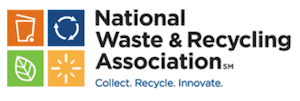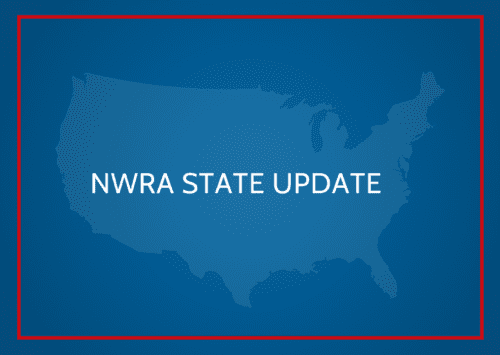NWRA State Update: NWRA Florida Chapter Provides Legislative Update on Six Bills
In this NWRA State Update, the NWRA Florida chapter provides a legislative update on the following bills: House Bills 473, 539 and 1309, and Senate Bills 72, 904 and 1734.
Construction Liens and Bonds
House Bill 473 sponsored by Rep. Jackie Toledo (R-60) relating to construction liens and bonds was unanimously approved by the House Judiciary Committee on March 7. The bill received several amendments and now all stakeholders are in agreement with the exception of the Associated Builders and Contractors. The Senate companion bill, Senate Bill 622 sponsored by Sen. Keith Perry (R-8), is on the Special Order Calendar for March 8.
In Section 4 of the bills, a large construction project may result in a lienor receiving multiple contracts on the project. The bill provides that in these cases, the lienor can record a single consolidated lien, instead of a lien for each contract, to enforce the lienor’s rights to payment.
The solid waste industry has utilized the construction lien law to protect its assets. A company will place a container at a construction site where it is filled with solid waste or recyclable materials. If the company is not paid for its services, it still must pay for the disposal of materials placed in the container. Between the cost of disposal and lost revenues for the rental of the roll-off container, a solid waste company could lose a significant amount of revenue.
Renewable Energy
House Bill 539 sponsored by Rep. Cord Byrd (R-11) relating to renewable energy was unanimously approved by the House Commerce Committee on April 6. The bill includes landfill gas in the definition of renewable energy. The next stop for the bill is the House Calendar.
Ratification of DEP Rules (Biosolids)
House Bill 1309 sponsored by Rep. Bobby Payne (R-19) relating to the ratification of Department of Environmental Protection rules was placed on the Special Order Calendar for March 31 and was unanimously approved on April 1. Since 2019, the Florida Department of Environmental Protection (DEP) has been working on a rule to regulate biosolids. Due to legislation that passed last session, the DEP withdrew the previous rule and fast-tracked a new one. Because the Statement of Estimated Regulated Costs showed that the adverse impact or regulatory cost of the proposed rule exceeded $1 million in the aggregate, within five years after implementation, the proposed rule must be submitted to the legislature for ratification.
The Florida chapter of the National Waste and Recycling Association (NWRA) has traditionally monitored biosolid legislation. A few years ago, legislation was proposed to mandate biosolids disposal at landfills only. Not all landfills can handle this type of waste, so the proposed legislation was defeated.
Civil Liability for Damages Relating to COVID-19
Senate Bill 72 sponsored by Sen. Jeff Brandes (R-24) relating to civil liability for damages relating to COVID-19 passed both the House and Senate. It was signed into law by the governor on March 29.
Doorstep Refuse and Recycling Collection Containers
Senate Bill 904 sponsored by Sen. Manny Diaz (R-36) relating to doorstep waste containers was unanimously approved by the Senate Rules Committee on April 6. Currently, there are various providers offering doorstep waste collection services to apartment complexes throughout the state. Residents in these complexes place waste outside their front door, and the provider picks it up. An apartment complex resident’s front door usually opens to a hallway, corridor or walkway, which may lead to the building’s exit access. The bill repeals the July 1, 2021, expiration date for the statutory provisions, thus allowing residents in apartment complexes to continue placing waste outside their front door for pickup by waste collection services, which may conflict with the fire code. The bill has been placed on the calendar for a second reading.
Consumer Data Privacy
Senate Bill 1734 sponsored by Sen. Jennifer Bradley (R-5) relating to consumer data privacy received a favorable vote of 11 to 5 by the Senate Rules Committee on April 6. CS/SB 1734 creates the Florida Privacy Protection Act to grant Florida’s consumers the ability to share their personal information as they wish, in a way that is safe and that they understand and control. The act generally applies to businesses that collect Florida consumers’ personal information and that either have a gross revenue of $25 million or more; earn 50 percent of their revenue from the sale or sharing of personal information; or buy, receive, sell or share the personal information of 50,000 or more consumers in a year.


